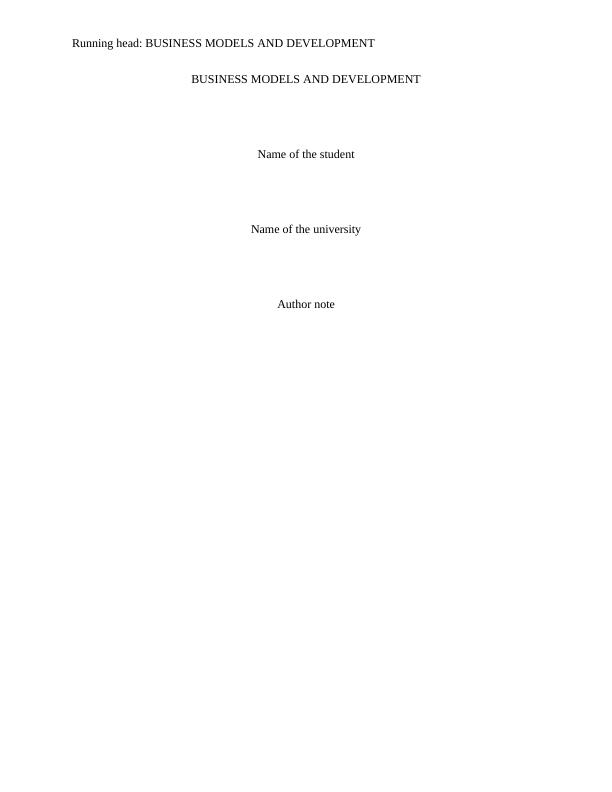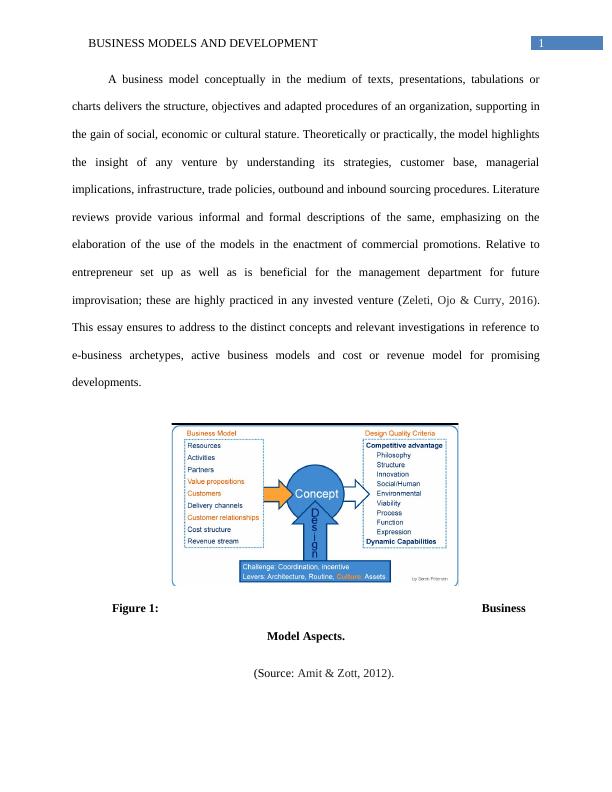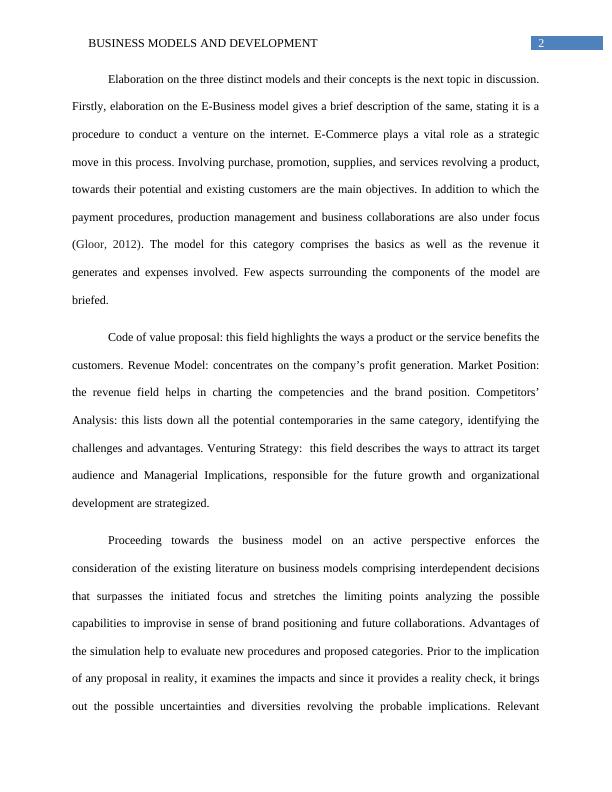BUSINESS 2020- Business Models and Development
9 Pages2015 Words59 Views
The University of Sydney
Business Development (BUSINESS 2020)
Added on 2020-03-04
About This Document
The below essay ensures to addresses the distinct concepts and relevant investigations about e-business archetypes, active business models, and cost or revenue models for promising developments.
BUSINESS 2020- Business Models and Development
The University of Sydney
Business Development (BUSINESS 2020)
Added on 2020-03-04
ShareRelated Documents
End of preview
Want to access all the pages? Upload your documents or become a member.
Applied Business Research on Innovation in Accounting
|6
|1909
|264
Applied Business Research
|8
|1920
|346



